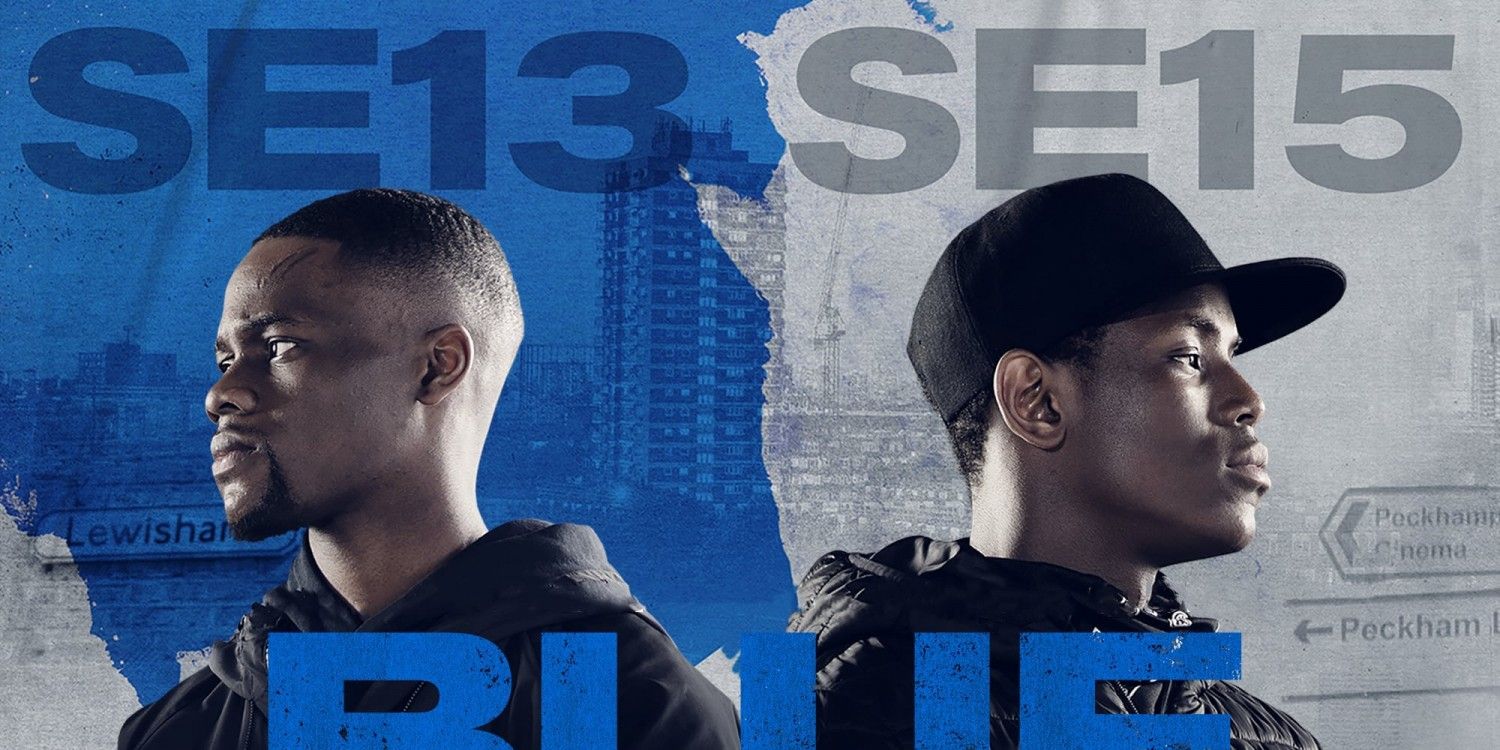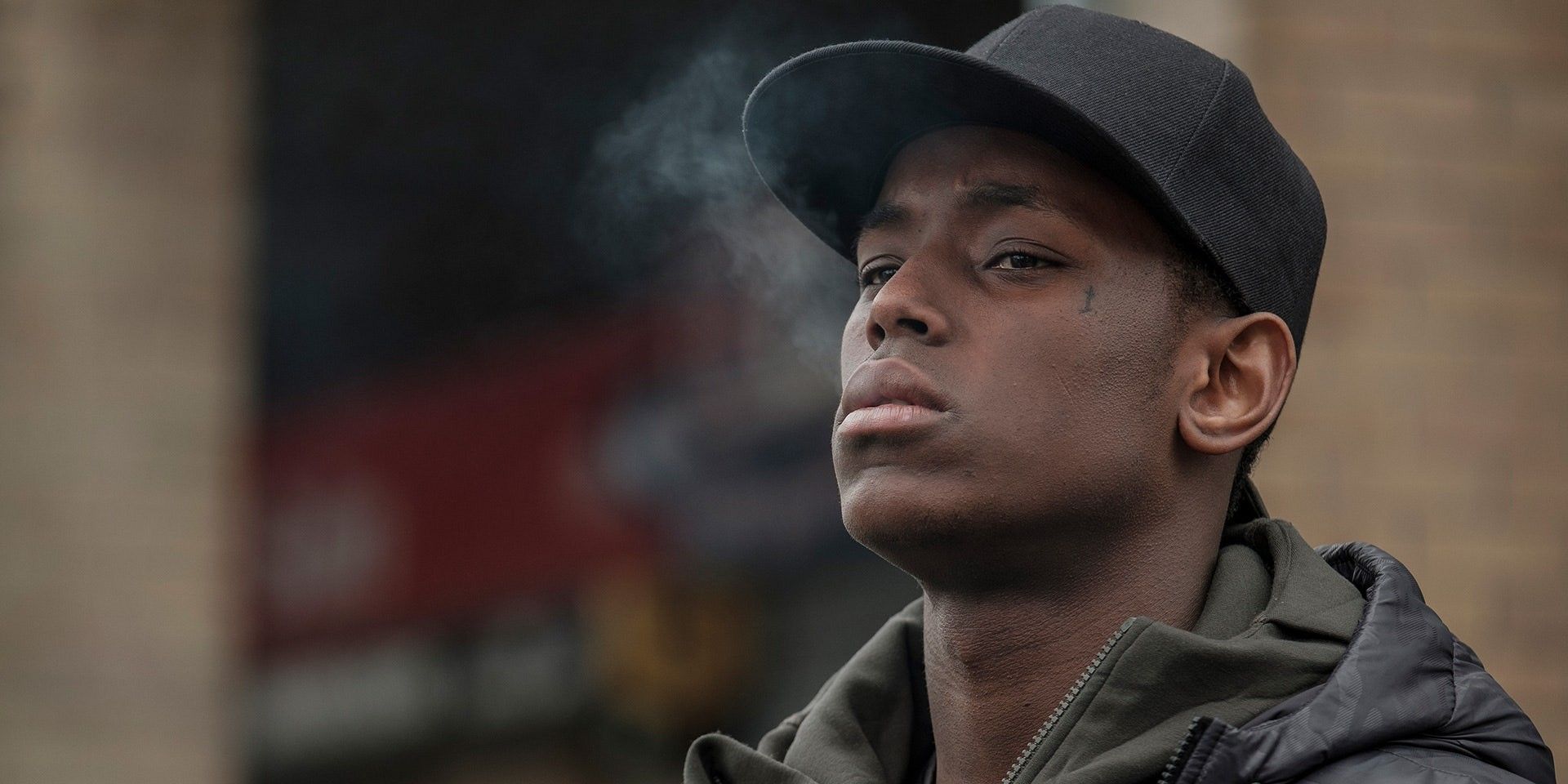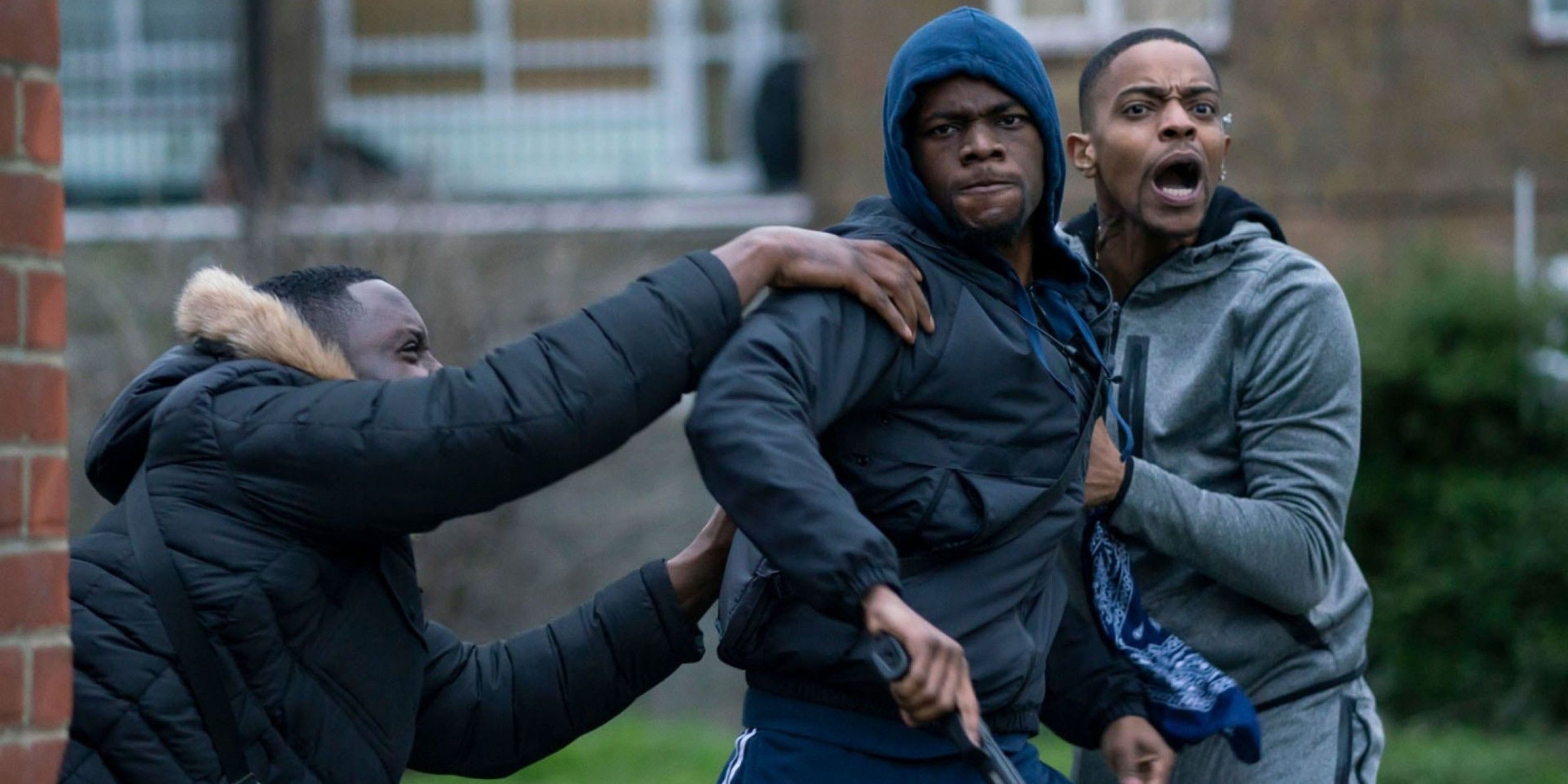Gang turf warfare meets Shakespearean melodrama (as told through the language of rap) in Andrew Onwubolu aka. Rapman's Blue Story, an impassioned feature-length adaptation of the British musician-filmmaker's YouTube series inspired by his real-life upbringing. The film made headlines after violence broke out at screenings in the UK last fall, yet the actual movie is anything but a sensationalized drama and is fiercely critical of the machismo that fuels the destructive behavior of its depicted versions of real-world London gangs. It's also clearly the work of a first-time director who's already found their voice and is ready to take the next step of refining it. Blue Story can be messy in stretches, but it's undeniably passionate and carried by its simple, yet effective, and sometimes lyrical storytelling.
The film stars Stephen Odubola as Timmy, a book-smart yet timid boy from the Deptford region of London who attends school in Peckham and is friends with Marco (Michael Ward), a good-natured, streetwise kid whose older brother Switcher (Eric Kofi-Abrefa) is a member of the Peckham Boys gang affiliated with the region. In spite of the tensions between them and Deptford's Ghetto Boys, Timmy and Marco are deeply loyal to one another and willing to put themselves in harm's way when the other is threatened by the gangs in their respective areas. However, after Marco is attacked by one of Timmy's former schoolmates-turned Ghetto Boys, it sets off a chain of events that culminates in tragedy and ultimately shatters their friendship. Three years later, the two have become rivals in the ongoing street war and begin hunting one another in an increasingly violent (and hollow) search for revenge.
At its core, Blue Story is a basic morality play that unfolds like one of The Bard's tragedies, right down to having a Greek chorus in the form of a rapping Rapman (who also wrote the script). The filmmaker is guilty of using this particular element to get away with telling, not showing, what's happening to the characters at times, but it otherwise fits with Blue Story's overarching theatrical design. Narratively, the movie is at its strongest when it focuses on its coming of age themes about friendship, black masculine identity, and first-love in the early going (with the ongoing gang wars unfolding in the background). Things start to get shakier from there, though, as the focus shifts to the collapse of Timmy and Marco's relationship. In a common misstep for newbie directors, Rapman tends to introduce new characters and plot points a little too quickly, the further along Blue Story goes. It keeps the film's runtime down, but at the expense of delivering a richer experience.
Many of the supporting players in Blue Story are similarly thinly-drawn and the ensemble cast, as a whole, comes across as a little too inexperienced to make up the difference with their performances. Fortunately, the film delivers where it counts, with Odubola doing an excellent job of selling Timmy's transformation from shy and awkward nerd to vengeful gang member. Ward isn't quite as strong by comparison, but still does good work, especially when it comes to his chemistry with Odubola and the way he captures Marco's inner turmoil as he wrestles with the unexpectedly (and increasingly) dire consequences of his actions. Karla-Simone Spence is equally charismatic in her turn as Leah, Timmy's crush, and her interactions with Odubola are sweet and touching. Disappointingly, however, her actual role in Blue Story is predictable and regressive by comparison.
Rapman manages to compensate for many of these flaws with his assured direction, blending Mdhamiri Á Nkemi's rhythmic editing with Simon Stolland's intimate photography to bring the proceedings to energetic and often vibrant life. His personal connection to and familiarity with the London boroughs shines through in the way Blue Story portrays its characters' day to day lives and interactions, and there's never a feeling the movie was made by someone who's clueless about how modern teenagers interact in the age of social media. Admittedly, there are times when Blue Story's low-budget becomes apparent and, along those same lines, Rapman doesn't always find his footing when it comes to shooting the more action-driven scenes. But what he does accomplish is promising enough to leave you wanting to see what he can do with a bigger canvas to paint on.
Altogether, Blue Story does what any good debut feature should: establish its director as a storyteller with a unique style and a voice worth listening to. It's the type of non-American film that might've struggled to make its way across the pond (much less, attract a sizable audience) in the past, but is thankfully more accessible in the current market. That's all the more meaningful, considering its messages about toxic masculinity and young black lives should resonate just as much with people in the U.S. as it does in the UK. All in all, it's a story to pause and take in.
Blue Story is now available on digital platforms for rent and purchase. It is 91 minutes long and is rated R for violence and language throughout, drug use and some sexuality.



